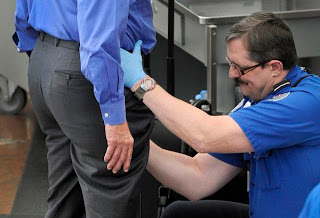One of the biggest problems my students have is unclear writing. This is a problem because when readers can't understand something, they may just stop reading it. Clarity is especially important for journalists who want to go into television or radio news. Broadcast news must be clear because viewers and listeners can't reread what they don't understand.
I came across some unclear writing today in
Editor & Publisher, a trade magazine for journalists. You'd think that such a magazine would want to avoid unclear writing at all costs, if only to escape snarky readers like me. Here's the lead that confused me:
 "In 1974, Jack Klunder, president and publisher of the Los Angeles Daily News, discovered that his 1966 Ford Mustang had been stolen from a college parking lot."
"In 1974, Jack Klunder, president and publisher of the Los Angeles Daily News, discovered that his 1966 Ford Mustang had been stolen from a college parking lot."
(I don't know if Klunder's Mustang was red, but I really like Mustangs, and I found this photo online.)
That's confusing in two places, come the think of it. First, the sentence implies that Klunder was the president and publisher of the newspaper in 1974. But that's not the case, according to the rest of the story. To fix this, the writer might have written "In 1974, Jack Klunder,
now president and publisher ..."
The second problem stems from the fact that the author includes two years in the sentence. It's just plain confusing. I had a teacher in college who told us "numbers are numbing." It's true. The more figures a sentence contains, the more confusing it becomes. I would solve this problem by inserting the model year of the car a bit later in the story.
Clarity is worth working toward. If you find something in this post that seems unclear, post a comment.

